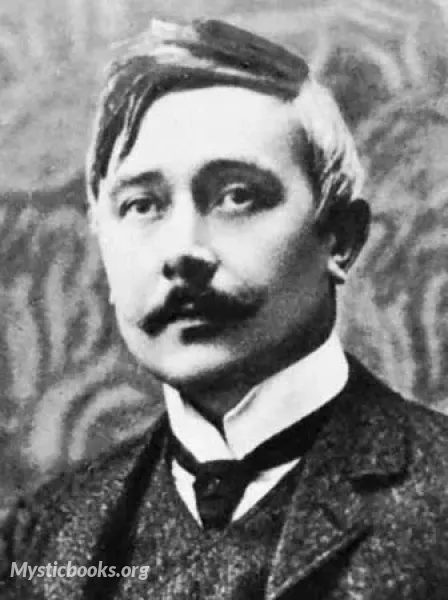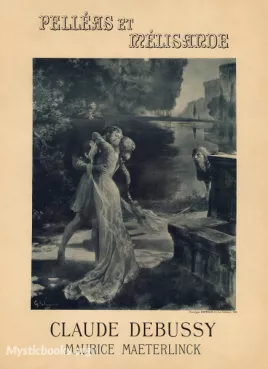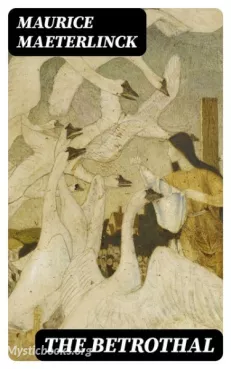
Timeline
Title
Country/Nationality
Maurice Maeterlinck
Maurice Maeterlinck, a Belgian playwright, poet, and essayist, was a significant figure in late 19th and early 20th-century literature. His contributions to Symbolism and his unique philosophical perspective set him apart as a renowned literary figure of his time. This essay explores Maeterlinck's life, principles, notable works, his philosophical outlook, his legacy, and some intriguing aspects of the author.
Who was Maurice Maeterlinck?
Maurice Maeterlinck was born on August 29, 1862, in Ghent, Belgium. He displayed early literary talents and was drawn to the arts and philosophy. He pursued legal studies but shifted his focus to literature and dramatic arts, immersing himself in the Symbolist movement.
Principles and Notable Works:
Maeterlinck's writing often delved into philosophical and mystical themes, reflecting the Symbolist movement's emphasis on spirituality and subconscious. His play "The Princess Maleine" (1889) marked his debut in theater, followed by "The Intruder" (1890) and "Pelléas et Mélisande" (1892). However, he gained international fame with "The Blue Bird" (1908), a fairy-tale-like play that became a classic of children's literature.
Philosophy:
Maeterlinck's philosophy centered on the idea of the mysterious and unexplainable forces shaping human existence. He explored themes like fate, death, and the human psyche, delving into the intricacies of the human condition. He believed that life's true meaning lies beyond the realm of reason and logic, a perspective that resonated with many in the Symbolist movement.
Legacy and Notable Works:
Maeterlinck received acclaim for his unique literary style, combining prose and poetry to create evocative imagery. His works heavily influenced the Symbolist movement, inspiring writers like W.B. Yeats and T.S. Eliot. He won the Nobel Prize in Literature in 1911 for his "wealth of ideas and artistically perfect form."
Death and Rememberance:
Maurice Maeterlinck passed away on May 6, 1949, in Nice, France. Despite his later years being marred by political controversies, he is remembered as a literary giant and a master of symbolism. His legacy endures through his timeless works, which continue to captivate readers and inspire new generations of writers.
Intriguing Aspects of the Author:
Apart from his literary achievements, Maeterlinck had an interest in entomology and beekeeping. He wrote a treatise on bees, "The Life of the Bee" (1901), which explored the social structure of bee colonies and drew parallels with human societies.
Conclusion:
Maurice Maeterlinck's life and works continue to be celebrated for their profound philosophical insights and artistic excellence. His contributions to Symbolism and his unique perspective on the human experience have left an indelible mark on literature and continue to resonate with readers worldwide. As a Nobel laureate and a literary pioneer, he remains an essential figure in the history of modern literature.
Books by Maurice Maeterlinck

Pelléas and Mélisande
In a mysterious and enchanting land, two souls entwined by fate embark on a haunting journey of love and destiny. Explore the ethereal world of "Pelléas and Mélisande," a captivating play by Maurice Maeterlinck, filled with secrets, passion, and the...

The Betrothal
In the ethereal realm where love intertwines with destiny, "The Betrothal" by Maurice Maeterlinck weaves a tale of passion and preordained unions. Picture a world where souls are fated to be betrothed long before they inhabit earthly forms. In this...

Children's Life of the Bee
This book, written in simple language, explains the fascinating world of honey bees for young readers. It takes them on a journey into the inner workings of a beehive, from the initial swarm to a fully functional colony with thousands of bees. Childr...

Blue Bird: A Fairy Play in Six Acts
The Blue Bird is a whimsical and thought-provoking allegory that follows the adventures of Tyltil and Mytil, two young children who embark on a quest to find the Blue Bird of Happiness. Along the way, they encounter a cast of unforgettable characters...

Blue Bird for Children
The Blue Bird is a story about two children, Tyltil and Mytil, who are on a quest to find the Blue Bird of Happiness. Along the way, they meet many different characters, both good and evil, and learn about the importance of love, hope, and happiness....

vie des abeilles
Maurice Maeterlinck's *Vie des Abeilles* is a fascinating exploration of the intricate world of bees. Combining scientific observation with philosophical reflection, Maeterlinck delves into the complex social structures, instinctive behaviors, and s...

Death
Maurice Maeterlinck's 'Death' delves into the profound and universal human fear of death. Examining the cultural and societal roots of this anxiety, Maeterlinck probes the reasons behind our dread, challenging us to confront death not as a terrifying...

Intelligenz der Blumen
In "Intelligenz der Blumen", Maurice Maeterlinck präsentiert eine Sammlung von elf Essays, die tiefgründige Betrachtungen über die Natur und die Gesellschaft anstellen. Der Titelessay, der den größten Teil des Buches ausmacht, befasst sich mit der fa...

Leben der Bienen
In "Leben der Bienen", Maurice Maeterlinck erforscht die faszinierende Welt der Bienen und deren komplexen Lebensweise. Mit akribischer Beobachtung und wissenschaftlicher Präzision enthüllt er die sozialen Strukturen, die Kommunikation und die Instin...